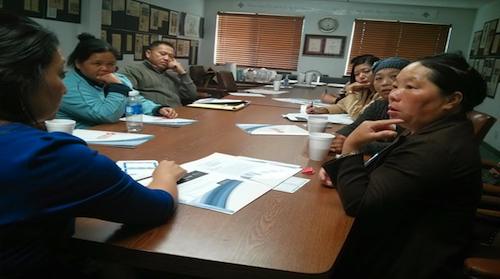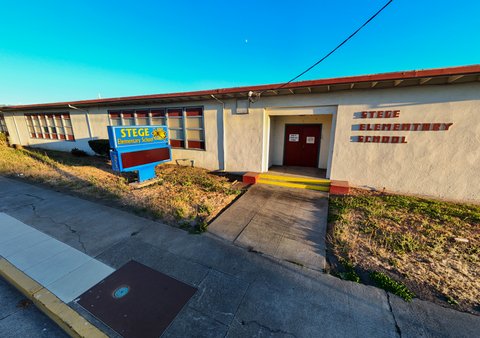
16 Jan Hmong Parents Rely on School Janitor for Translations
News Report, Colby Tilbbet | The kNOw Youth Media
FRESNO — Hmong parents and community members in Fresno say a lack of translation services for Hmong speakers is the greatest barrier to that community’s engagement with Fresno Unified (FUSD) schools.
A group of them gathered for a listening session last month where they weighed in on the debate over how local school districts should be allocating their state funds.
“When I go (to school meetings), I feel like I’m an outcast,” said Yeng Xiong, a mother of two and a native Hmong speaker. Xiong said she still attends the school meetings, even though there is never a translator for her.
Hmong youth make up the second largest group of English Language Learner (ELL) students in FUSD, with Spanish-speaking students being the largest, according to the California Department of Education. Hmong are the largest Asian ethnic group in the City of Fresno, with a population of 31,771, or 3.6 percent of the city’s total population, according to 2010 census figures. In the U.S., only Minneapolis boasts a larger Hmong community (64,422) than Fresno.
The meeting, hosted by Fresno Interdenominational Refugee Ministries (FIRM), a faith-based nonprofit located in Central Fresno, was organized by New America Media to bring the voices of Hmong parents into the evolving debate over how school districts should be spending their money, in light of the state’s new school funding scheme – known as Local Control Funding Formula (LCFF) – that gives local school districts more control than ever before over how they spend their state education dollars.
The community event was just one in a series of such forums, organized by NAM and financed by The California Endowment, a private health foundation, to provide a space for ethnic minority parents in California to be heard on matters concerning LCFF.
Input gathered from these meetings and others will be presented at a State Board of Education Hearing on LCFF in Sacramento on January 16th.
Paula Cha, interim co-director of FIRM, was on hand to translate for the Hmong-speaking parents who needed assistance.
A lack of Hmong speakers on school faculties and staffs, said the parents, is a major cause of the poor, or nonexistent, communication between schools and Hmong families. Without designated translators or people who can step in to fill the gap informally, parents said they felt they often miss out on large parts of their children’s education, such as not being able to attend parent teacher conference meetings, or missing general announcements made by the school.
Mee Vue, a grandparent of students attending Birney Elementary, said that her school was lucky to have a translator — the school janitor, who happens to be Hmong.
“From my experience, I feel that [he does] translate well,” said Vue.
But for Hmong parents in Fresno, Vue’s experience is the exception and not the rule.
In addition to the lack of on-campus translators, letters and notices sent by traditional mail can also often go unnoticed, due to the language barrier. And although many Fresno Unified schools produce materials that are translated into Hmong, that information reaches a limited audience, since many, if not most, Hmong speakers do not read the language.
“If you do send some literature, it will probably end up in the trash,” said Yue Cha, a father of four. “We do have Hmong [broadcast] media here locally, [and] I think that is one great way to communicate that would reach everyone’s home — either radio or television.”
Despite the communication challenges, many parents did express that their children’s schools have done a great job of teaching Hmong history and celebrating Hmong cultural heritage in their classrooms, such as when schools host events for Hmong New Year.
“Its good to know your background [is being taught at school], and I would love to see more of that. I know more schools are doing that,” said Cha.
Because the community is tightly knit, Cha believes that it wouldn’t take much to get more Hmong parents involved in the Fresno schools.
“If schools would designate a Hmong as a key leader, I think that could draw some Hmong parents,” he said.
Other issues stressed by parents were health and nutrition on school campuses. Many parents suggested instituting more health and recreation programs, a greater and healthier variety of food, and more time allotted for students to eat on campus.
“It seems like my son doesn’t receive an adequate meal for lunch,” said Xiong.
Related: The ABCs of Hmong
The kNOw Youth Media is a project of New America Media.






No Comments